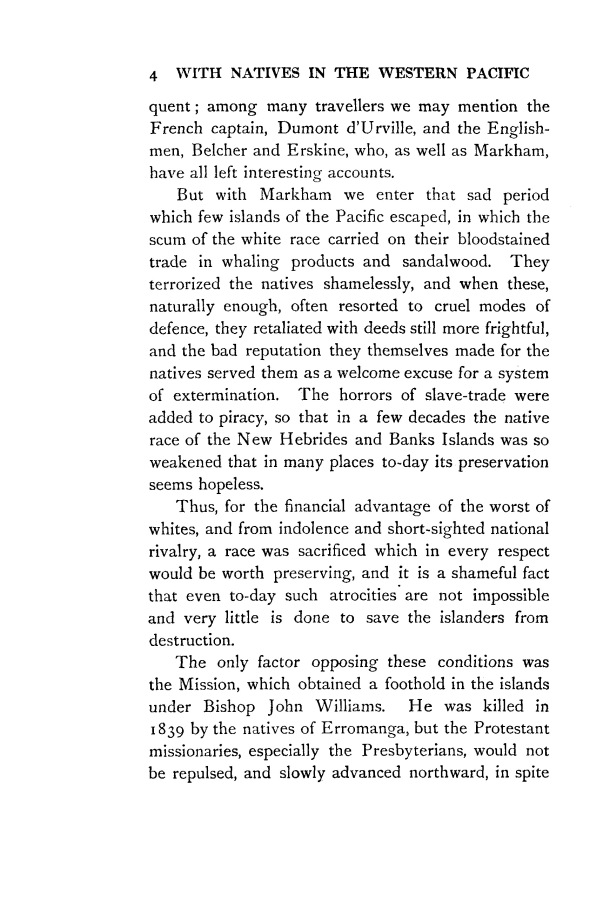|
|  [Note: this transcription was produced by an automatic OCR engine]
4 WITH NATIVES IN THE WESTERN PACIFIC
quent; among many travellers we may mention the
French captain, Dumont d’Urville, and the English-
men, Belcher and Erskine, who, as well as Markham,
have all left interesting accounts.
But with Markham we enter that sad period
which few islands of the Pacific escaped, in which the
scum of the white race carried on their bloodstained
trade in whaling products and sandalwood. They
terrorized the natives shamelessly, and when these,
naturally enough, often resorted to cruel modes of
defence, they retaliated with deeds still more frightful,
and the bad reputation they themselves made for the
natives served them as a welcome excuse for a syStem
of extermination. The horrors of slave—trade were
added to piracy, so that in a few decades the native
race of the New Hebrides and Banks Islands was so
weakened that in many places today its preservation
seems hopeless.
Thus, for the financial advantage of the worst of
whites, and from indolence and short-sighted national
rivalry, a race was sacrificed which in every respect
would be worth preserving, and it is a shameful fact
that even to-day such atrocities. are not impossible
and very little is done to save the islanders from
destruction.
The only factor opposing these conditions was
the Mission, which obtained a foothold in the islands
under Bishop John Williams. He was killed in
1839 by the natives of Erromanga, but the Protestant
missionaries, especially the Presbyterians, would not
be repulsed, and slowly advanced northward, in spite
|